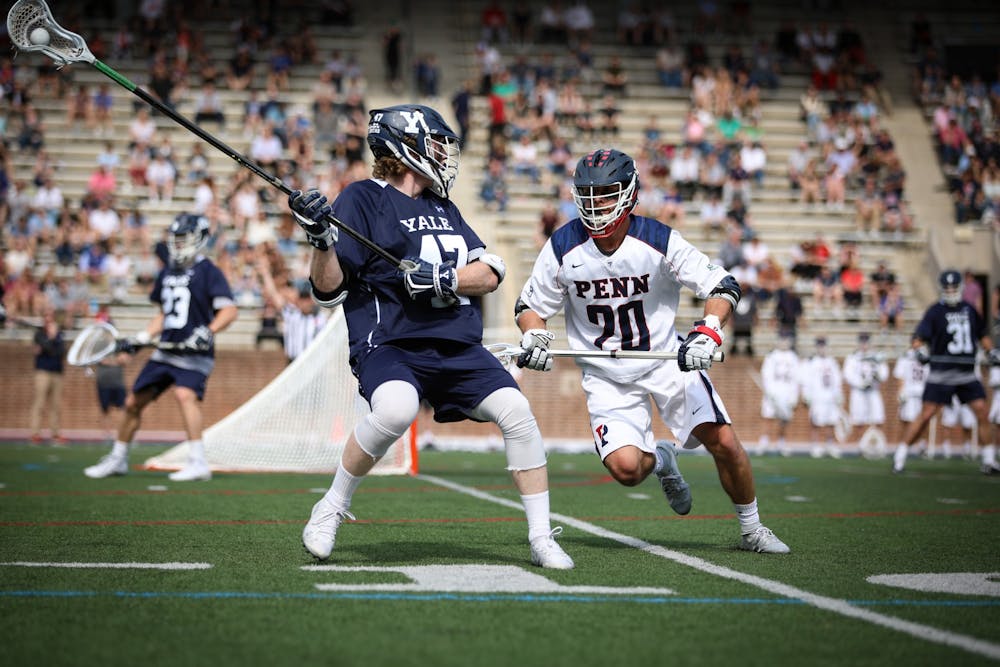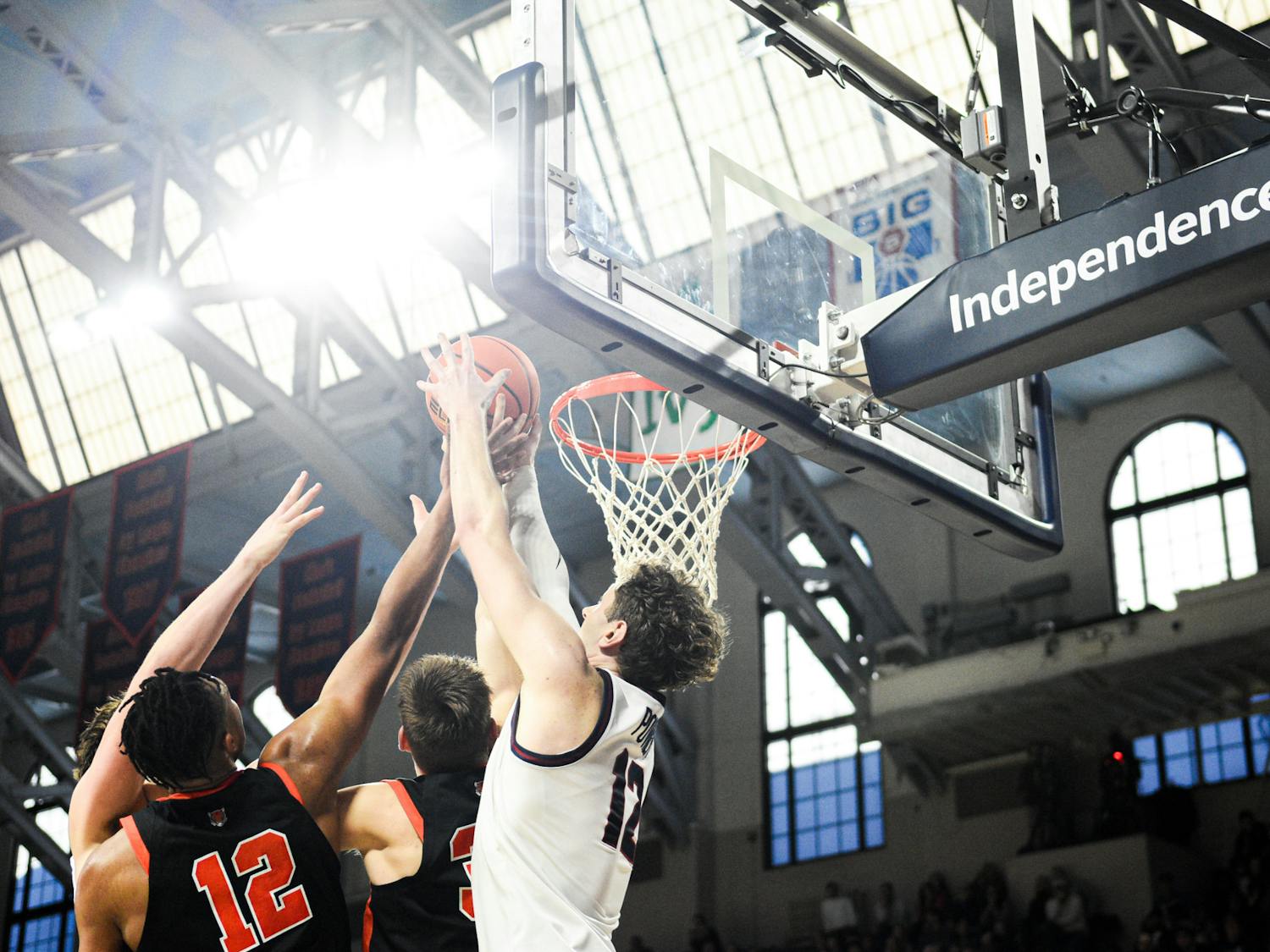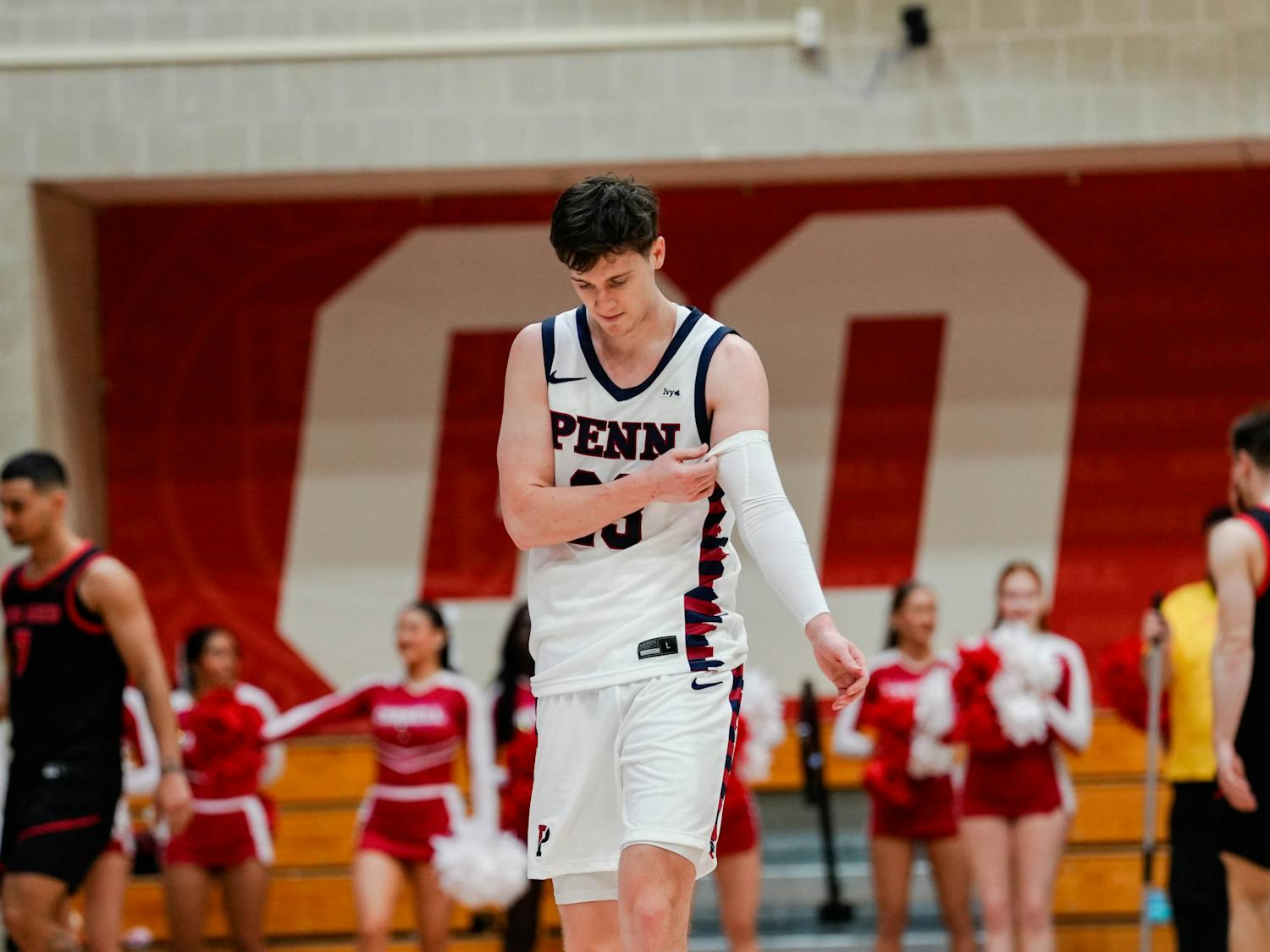Two days prior to the Ivy League’s Feb. 18 decision to cancel all conference competition for 2021spring sports, Penn men’s lacrosse addressed a letter to Ivy League presidents and athletic directors conveying why they believed that the cancelation of spring competition would prove to be extremely detrimental to student-athletes.
Leading the charge in crafting the letter was Quint Miniter, a sophomore attacker from New York.
“I had read a ton of information on the topic and felt strongly about it, and we wanted to present the information in case some of our points had not been expressed to them,” Miniter said. “We also thought it would help our cause if we publicized a clear message on behalf of our team that alumni and other athletes and teams could read.”
The Quakers outlined their evidence in three different sections. The letter opened by presenting scientific research that on-field transmission of the COVID-19 virus is nearly impossible. The second section argued that the Ivy League conference has made a commitment to follow science, and prohibiting spring competition was not aligned with this commitment. Lastly, the team ended the letter by making clear that canceling the season will affect both the players' mental health and safety from the virus off the field.
“The ultimate goal was to convince them to let us play a modified, COVID-safe season, just like every single other conference in Division I,” Miniter said. “The decision to cancel seems to neglect the Ivy League’s commitment to make decisions with safety and well-being in mind.”
For many of the Quakers, this 2021 season would have contained their final goals and last celebrations on Franklin Field. Senior attacker Adam Goldner from Allentown, Pa. described how it feels to have his final season wearing the Red and Blue taken away.
“I’ve brought it up a few times to the team since the news broke on February 18th that while I will not be here next year, nearly everyone else can be, and the precedent they set now will stick with the team for years to come,” Goldner said. “As someone who is now closer to being an alumnus than a player, and worked tirelessly over the last five years to be proud of the brand I helped create, I plan on continuing to do whatever I can until late May to maintain that.”
In the letter, the team highlights the findings of medical professionals who examined the leagues and conferences that have successfully put on seasons during the pandemic. The Quakers put particular emphasis on the fact that lacrosse specifically has very minimal total time of close contact.
RELATED:
Student-athletes react to Penn’s sophomore dining plan requirement
Pottruck Health and Fitness Center reopens to all undergraduate students
“We would estimate — and we are happy to help figure out an exact number of minutes if needed — that in normal times, individual players spend a maximum of 5-8 minutes within 6 feet of defenders,” the letter states. “With masks on, we struggle to find any scientific backing for cancelling competition.”
The Quakers repeatedly acknowledge how scientific studies have deemed outdoor activities and gatherings safe while claiming indoor happenings unsafe. With most Ivy League institutions allowing for on-campus housing and dorm life this semester, the lacrosse team argues that a season of competition would be just as safe as “university-endorsed dorm living.”
Sam Handley, a junior midfielder from Portland, Ore., is on the long list of players who are both shocked and frustrated with the Ivy League’s decision to cancel its season. Handley received countless recognitions as a freshman in 2019, including unanimous selections as Ivy League Rookie of the Year and first team All-Ivy.
“I think if someone in the administration had talked to us and had seen the strain, stress, and mental toll keeping us in the dark for so long had taken on us, maybe their decision would have changed,” Handley said. “Still, the guys on the team will continue to be resilient, and be ready to play whenever that time comes, because we love what we do and the people we do it with.”
The final section of the letter posits that not having a spring season would likely result in student-athletes being less conscious of COVID-19.
"In an attempt to be as transparent and honest as possible, we think it is undeniable that, despite the ethical issues, student-athletes will be significantly less conscious of COVID-19 if there is no season," the letter states. "In our eyes, the very small risk of having an in-game transmission is heavily outweighed by the misguided risks that would inevitably be taken by the average student-athlete if there is no season. We know that, of course, this is not a reason to have a season, but we strongly hold that it would be naive to think that cancelling the season would be more COVID-safe than having a season."
In addition, Miniter and his teammates stress the negative effects a cancelation will have on the mental health of student-athletes, given the vast amount of time and effort each athlete has put into their sport in hopes of earning a spot in the lineup each season.
Although the Ivy League will not be holding conference competition or league championships this spring, the Feb. 18 decision allowed for in-person practices to continue and left open the possibility for local competition if public health conditions improve.
Whenever the time comes, the Red and Blue will be ready to take care of business as usual on Franklin Field.









